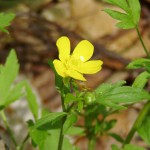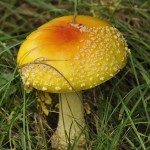We encourage you to visit our preserves for passive recreation such as hiking, bird watching, cross-country skiing, nature study, and photography. Please understand that our preserves are private properties, managed to protect native species and natural communities. When visiting any of our preserves, please follow these simple guidelines. This will protect the species living there and will ensure that others are able to enjoy the experience too.
- Stay only on marked paths and trails.
- Keep group sizes small. Special permission is needed for groups larger than 15 people.
- Motorized vehicles, off-road vehicles, and bicycles are strictly prohibited, with the exception of vehicles required by individuals with mobility disabilities. Individuals with a mobility disability may use battery-powered personal assistive mobility devices. Please see our policy related to OPDMD’s. Many trails in Legacy preserves are rugged and some, such as those in marshy and other lowland areas, may cause operational problems. We recommend you contact Legacy for information prior to going to a preserve.
- Dogs are permitted on-leash. Please bring supplies to clean up any waste.
- Hunting and trapping are not permitted at our preserves with the exception of Falconry with a license and permit issued by Legacy.
- Firearms are not allowed on our preserves under any circumstances.
- Smoking, camping, and fires are prohibited.
- Removing rocks, plants, dead wood, or animals is prohibited. Please contact Legacy if you would like to help with invasive plant removal either at a workday or on your own.
- Do not litter. Pick up any litter you may come across.
- Do not trespass on land adjacent to Legacy preserves.
- Do not remove any stakes, poles, signs, markers, or other objects—they may be part of an ongoing study or class.
- Horseback riding is permitted only at Sharon Hills Preserve. Please contact Legacy about helping with trail maintenance at this preserve if you ride your horse there.
- Reichert Preserve is open by permission only due to the sensitive nature of the property. Please contact us at [email protected] or 734-302-5263 to obtain permission to visit this preserve.

To Reduce Ecological Impact:
- Please stay on the trails.
- Be aware that seeds stick to shoes and clothing. You may introduce non-native weeds into a preserve without knowing it. Try to enter preserves from areas that are as free as possible from weeds. Inspect clothing and shoes (including soles) and remove any seeds before entering preserves.
- Avoid walking in boggy or wet areas where soils are saturated and soft. These areas are especially sensitive to vegetation trampling.
- If you flush or frighten a ground-nesting bird, stop and walk around the nest area. Eggs and nestlings are well concealed and can be easily crushed.
- Observe, but do not disturb any animals you may encounter.
Safety Suggestions:
- Wear footwear suitable for hiking. We recommend long pants with socks pulled over the cuffs and long sleeves to protect yourself from mosquitoes, chiggers, ticks, poison ivy, or poison sumac.
- Check weather reports before you go so you can dress appropriately – wearing layers is a good idea with the unpredictable Michigan weather.
- Keep in mind there are no restroom facilities on our preserves.
- Go with someone. If you must go alone, let someone know where you’re going and when you plan to return.
- Bring a cell phone with you, if possible. Consider an alternate plan in case area phone reception is poor.
- Bring water with you.
- Wild boars have been seen near some of our preserves. In a natural state, feral hogs will prefer to run and escape danger, and are not considered dangerous. Do not follow or chase wild animals.
- Individuals with insect allergies should remember to bring along a bee sting kit.
- Check your skin for ticks after visiting any natural area.



